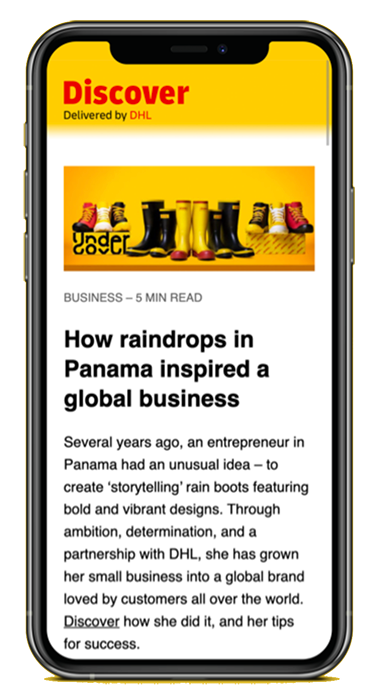Grow your business with the Discover newsletter
Logistics advice & insights straight to your inbox
Subscribe now
Influencers have the power to shape consumer trends. In Malaysia, for example, prominent individuals in the entertainment and fashion space have created waves in the modest fashion world.
Like influencers, micro influencers are equally significant and have the clout to alter opinions and decisions of the masses. One of the more effective adoptions of the micro-influencer strategy was witnessed by Yatsen Holding and their company Perfect Diary. The makeup company, based in China, is known for its concept of “unlimited beauty”. It has partnered with Key Opinion Consumers/Leaders (KOCs/KOLs), as well as social media platforms to drive brand awareness and sales of their products amongst middle-aged female makeup users in the country.
In doing so, Perfect Diary has generated a large consumer following. They have also strengthened their sales and marketing efforts by providing their customers with additional avenues to purchase their products, such as social media and other digital platforms.


Micro influencers are generally known to have between 10,000 to 50,000 followers on social media. However, the key consideration that separates them from other influencers is that they focus on a specific area of interest, and tend to have higher levels of audience engagement than most.
In China, micro influencers have had a huge impact on consumerism. In a 2019 survey, 82% of consumers indicated that their consumption behaviour is affected by these influencers. According to Mckinsey & Company, with the increasing spending power amongst the middle class and increased social media usage by the general Chinese population, a lot more consumers are searching for and reviewing products online before purchasing them. This has aided micro-influencers’ ability to facilitate purchasing decisions.
Perfect Diary’s micro-influencer marketing strategy comprises a range of influencers, from professionals in the fashion community, to international celebrities, to KOLs and KOCs. They help to spread the brand name and products via social media and e-commerce platforms. Through detailed beauty product testing and sharing posts related to these items, influencers help to drum up awareness and buzz.
We see the bandwagon effect take place here. This is where people adopt a certain behaviour and personality based on what they see or hear. It is especially powerful in regard to influential, prominent celebrities or influencers as their seal of approval carries more weight.
Perfect Diary uses Xiaohongshu, also known as “Little Red Book” – China’s version of social media and e-commerce that combines the features of Instagram, Pinterest and Amazon. It functions both to introduce products and drive browsers to purchase within the platform and is targeted towards young fashion or beauty enthusiasts. Another popular social media platform, Douyin – the name TikTok goes by in China and also owned by ByteDance – allows its users to create, edit and publish short videos.
Perfect Diary’s main online sales channel is Tmall, a B2C platform owned by Alibaba, however it strategically makes use of the reach Xiaohongshu and Douyin offers.
Their KOCs continue to promote their branding and products on their personal social pages, which has continued to increase Perfect Diary’s popularity. They currently have an upward of 1.7million followers and 110,000 notes, on just Xiaohongshu alone.
Perfect Diary also uses their social media channels as an additional avenue for promotion and sales. Consumers are able to view advertisements and buy products on their social pages, thereby receiving instant gratification; first by seeing what their idols are buying, and then immediately following suit so they don’t miss out.
Essentially, private traffic refers to the use of private channels for brands to contact their customers, instead of relying on third party platforms such as e-commerce chat features. By doing this, Perfect Diary has been able to improve the image of their brand amongst consumers with more personalised attention, and also increase their conversion rate. Additionally, the cost in managing their consumer traffic has also reduced compared to utilising third party sites.
At the peak of COVID-19, live streaming by KOCs and other micro-influencers were crucial in redirecting consumers to Perfect Diary’s private traffic channels on WeChat. With many stuck at home, their attention turned to watching their idols on social media. In doing so, this increased the rate of interaction between these influencers and consumers, and helped to bring them to Perfect Diary’s direct channels instead of e-commerce stores.
For businesses in Malaysia looking to gain a foothold in the Chinese market, Perfect Diary is an excellent case study to analyse and from which to adapt strategies. Their use of micro-influencer marketing, social media tactics and private traffic has allowed them to gain a significant foothold amongst makeup users in China in a short span of time.
Even if you’re on a tight budget, engaging a micro influencer can be an effective strategy your team can consider incorporating into your overall marketing plan to boost your brand awareness.